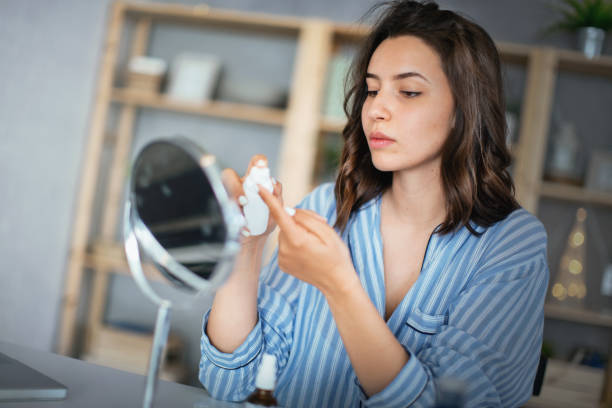How to Manage Adult Hormonal Acne
How to Manage Adult Hormonal Acne

How to Manage Adult Hormonal Acne
Adult hormonal acne can be a frustrating and challenging condition to navigate. While commonly associated with adolescence, hormonal acne can persist well into adulthood, affecting individuals of all genders. Understanding the underlying causes and adopting a holistic approach to skincare and lifestyle can help manage and alleviate the symptoms of adult hormonal acne.
8 Ways to Manage Adult Acne
Identify Hormonal Triggers
Hormonal acne in adults is often linked to fluctuations in hormone levels, particularly androgens. Factors such as menstrual cycles, pregnancy, and hormonal imbalances can trigger breakouts. Consultation with a healthcare professional or dermatologist can help identify specific hormonal triggers.
Skincare Routine
Establishing a targeted skincare routine is crucial. Use a gentle cleanser to cleanse the skin without irritating it. Use products containing salicylic acid or benzoyl peroxide to address acne-causing bacteria. Also, non-comedogenic moisturizers help maintain skin hydration without clogging pores.
Prescription Medications
Dermatologists may prescribe topical or oral medications to address hormonal acne in severe cases. Prescription retinoids, hormonal contraceptives, or anti-androgen medications can be effective in regulating hormone levels and reducing acne symptoms.
Nutritional Support
Diet plays a role in hormonal balance. An anti-inflammatory diet rich in fruits, vegetables, and omega-3 fatty acids can impact skin health. Limiting dairy, sugar, and processed foods may also improve hormonal balance.
Stress Management
Chronic stress can exacerbate hormonal imbalances, leading to increased acne flare-ups. Incorporate stress management techniques such as meditation, yoga, or regular exercise to promote overall well-being and hormonal balance.
Balancing Hormones Naturally
Some individuals go for natural remedies to balance hormones. Herbal supplements like chaste berry, evening primrose oil, or saw palmetto may help regulate hormonal levels. However, it's crucial to consult with a healthcare professional before incorporating these supplements into your routine.
Maintain Quality Sleep
Quality sleep is essential for hormonal regulation and overall skin health. Aim for 7-9 hours of uninterrupted sleep each night. Maintaining a consistent sleep schedule creates a relaxing bedtime routine and ensures your sleep environment is conducive to rest.
Avoid Triggering Skincare Ingredients
Some skincare ingredients can exacerbate hormonal acne. Avoid products containing comedogenic ingredients, artificial fragrances, and excessive alcohol. Choose fragrance-free, non-comedogenic products to reduce the risk of irritation.
Conclusion
Managing adult hormonal acne requires a multiple approach that addresses internal and external factors. You can take control of your hormonal acne and achieve clearer, healthier skin by identifying hormonal triggers, establishing a targeted skincare routine, considering prescription medications when necessary, and adopting a healthy lifestyle. Consultation with healthcare professionals and dermatologists is paramount to tailor an effective treatment plan based on your needs and circumstances.
